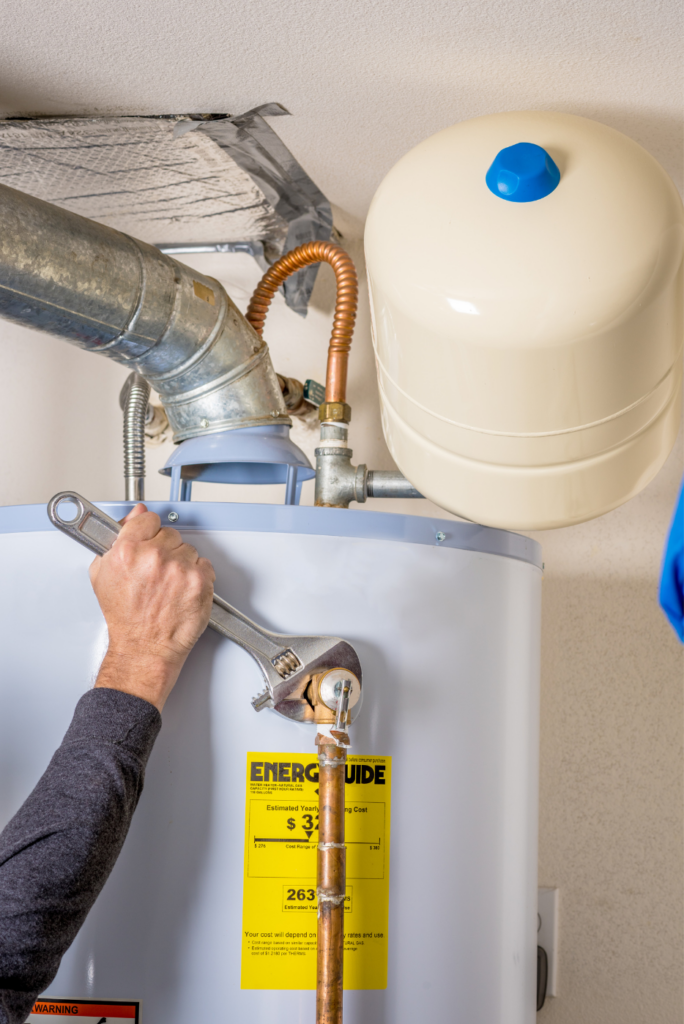Overcoming Everyday Water Heater Troubles
Overcoming Everyday Water Heater Troubles
Blog Article
Just about everyone seems to have their personal opinions with regards to Water Heaters Problems.

Think of beginning your day without your routine hot shower. That currently sets a poor tone for the remainder of your day.
Every house requires a reliable hot water heater, however just a few know just how to manage one. One simple method to maintain your water heater in leading shape is to look for mistakes consistently and also repair them as soon as they appear.
Remember to switch off your water heater before sniffing around for faults. These are the water heater mistakes you are most likely to come across.
Water as well warm or too chilly
Every hot water heater has a thermostat that determines exactly how warm the water obtains. If the water entering into your residence is as well warm in spite of setting a hassle-free optimum temperature level, your thermostat might be defective.
On the other hand, too cold water may be due to a failed thermostat, a broken circuit, or incorrect gas circulation. As an example, if you use a gas hot water heater with a busted pilot light, you would get cold water, even if the thermostat remains in ideal condition. For electrical heaters, a blown fuse may be the wrongdoer.
Not nearly enough warm water
Hot water heater can be found in numerous sizes, relying on your warm water needs. If you lack warm water prior to everybody has had a bath, your hot water heater is too little for your family size. You should take into consideration installing a bigger water heater container or going with a tankless water heater, which takes up less room as well as is much more durable.
Weird sounds
There are at the very least 5 type of sounds you can learn through a hot water heater, however one of the most usual interpretation is that it's time for the hot water heater to retire.
First of all, you need to know with the regular sounds a water heater makes. An electrical heating unit may seem various from a gas-powered one.
Popping or banging noises generally suggest there is a piece of sediment in your tanks, and it's time to cleanse it out. On the other hand, whistling or hissing sounds may just be your shutoffs allowing some stress off.
Water leakages
Leaks might come from pipelines, water links, valves, or in the worst-case scenario, the tank itself. Gradually, water will corrode the container, and discover its escape. If this takes place, you need to replace your water heater immediately.
Nevertheless, before your modification your entire container, make certain that all pipes remain in location which each shutoff works perfectly. If you still require aid determining a leakage, call your plumber.
Rust-colored water
Rust-colored water means one of your water heater elements is rusted. Maybe the anode pole, or the container itself. Your plumber will have the ability to identify which it is.
Lukewarm water
Despite just how high you set the thermostat, you will not obtain any warm water out of a heater well past its prime. A hot water heater's efficiency may reduce with time.
You will additionally get lukewarm water if your pipes have a cross connection. This indicates that when you activate a faucet, warm water from the heating unit flows in along with normal, cold water. A cross link is simple to spot. If your hot water taps still follow shutting the hot water heater valves, you have a cross connection.
Discoloured Water
Corrosion is a major cause of unclean or discoloured water. Rust within the water tank or a failing anode pole could trigger this discolouration. The anode rod secures the tank from rusting on the inside and also ought to be checked annual. Without a rod or a correctly working anode pole, the hot water quickly wears away inside the storage tank. Contact a professional water heater technician to establish if changing the anode pole will deal with the trouble; if not, change your hot water heater.
Conclusion
Preferably, your water heater can last 10 years prior to you need a modification. Nonetheless, after the 10-year mark, you might experience any of these mistakes extra consistently. Now, you must include a new water heater to your budget.
How To Troubleshoot 3 Common Water Heater Problems in Twin Cities
The Water Heater Is Leaking
A leaky cold water inlet valve A loose pipe fitting A leaky temperature and pressure relief valve A corroded anode rod A cracked tank Turn Off Your Water Heater:
Shut off your gas water heater by turning the gas valve on the unit to the “OFF” position. Shut off your electric water by switching its power off at your electrical panel. Look for a two-pole breaker labeled “water heater” and turn it to the “OFF” position. Move the ball valve connected to the water heater to be perpendicular to the piping at a 90° angle. Look for the Leak:
Depending on whether the water is coming from the tank's top or bottom, you’ll want to look for the leak in different locations.
If the leak comes from the top of the tank, carefully look for water escaping from the cold water inlet valve or loose pipe fittings. Rusted hot and cold water valves can have loose connections with the tank, with water leaking out of them.
https://mspplumbingheatingair.com/blog/how-to-troubleshoot-3-common-water-heater-problems
As a fervent reader on Common Problems with Your Home Water Heater, I imagined sharing that excerpt was sensible. Be sure to take the opportunity to distribute this post if you enjoyed it. I enjoy reading our article about Common Problems with Your Home Water Heater.
Professional help? One call away. Report this page